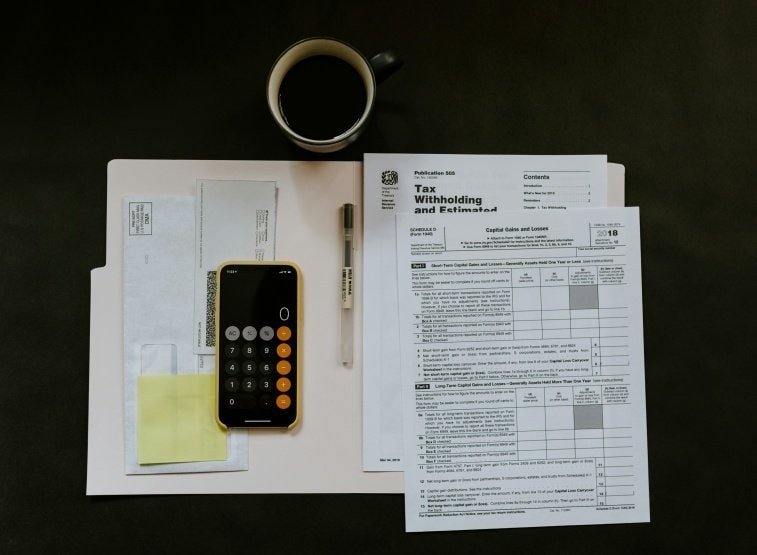Therapy meets clarity. Finally.
Splitifi’s AI suite for therapists and counselors supports client breakthroughs without crossing legal lines. Designed to protect your scope, speed your prep, and sharpen how you support clients navigating divorce, custody, and post-decree fallout.
Therapists aren’t lawyers and shouldn’t have to be.
Splitifi tools help you prepare therapeutic statements, summarize custody dynamics, and collaborate more effectively without risking legal overstep.
Created alongside trauma-informed clinicians and family law veterans to ensure you stay effective, ethical, and clear.
Clarity without compromise.
Category
Clinical Notes & Court-Safe Documentation
Reflect transforms session notes into ethically clean, court-smart summaries. Built for therapists navigating high-conflict custody cases, Reflect keeps your language therapeutic, your role protected, and your documentation airtight.
Pain Points We Solve
• Therapists pressured to “take sides” in notes
• Clinical language misused in court
• Risk of over-disclosure or boundary crossing
• Manual note redaction is time-consuming
Benefits
• Click-to-select note types (SOAP, DAP, custom)
• Built-in redaction for court-safe sharing
• Session themes linked to therapy goals
• Auto-reminders for reporting thresholds
• Therapist-first language with zero legal creep
See the story behind the behavior.
Category
Behavior Pattern Recognition
Trace turns session notes into trend insights. With built-in DARVO detection, emotion tracking, and timeline views, therapists can monitor behavior shifts without labeling or diagnosing.
Pain Points We Solve
• Hard to track behavioral changes over time
• Patterns missed in fragmented session notes
• Risk of over-interpreting conflict dynamics
• No clinical-safe tool to log DARVO or dysregulation
Benefits
• NLP-powered pattern tagging
• Flags emotional dysregulation trends
• DARVO and coercion cues highlighted
• Session-by-session timeline view
• Aligns behaviors to therapy—not legal blame
Let the themes speak without overstepping
Category
Therapeutic Summaries
Echo builds client-centered summaries that highlight session themes, emotional growth, and relational shifts. No diagnostics. No legal leaps. Just clean reflections that honor the therapist’s role.
Pain Points We Solve
• Clients request “letters” that risk legal entanglement
• Pressure to summarize progress for court
• Notes too clinical or too casual for external sharing
• Therapist language misinterpreted outside therapy
Benefits
• Auto-generates summaries from session logs
• Filters by theme, goal, or family system trend
• Built-in disclaimers protect therapist boundaries
• Shares therapeutic trajectory without legal stance
• Exportable with redaction toggles
Spot conflict cues before they escalate
Category
Conversational Risk Detection
Shield analyzes session language to detect signs of coercion, gaslighting, or high-conflict dynamics. It helps therapists name patterns without naming perpetrators.
Pain Points We Solve
• Subtle manipulation hard to track over time
• Therapists fear misstepping into legal territory
• Risky power dynamics get buried in notes
• No neutral way to flag coercive behavior
Benefits
• Detects DARVO and coercive control cues
• Tracks shifts in conversational tone
• Tags escalation and de-escalation markers
• Keeps language clinical and nonjudgmental
• Supports therapist awareness without bias
Support parenting without crossing into court roles
Category
Parenting Behavior Insights
Balance helps therapists build safe, goal-linked summaries of parenting behaviors observed in session. Designed for reunification work, coparenting support, or family therapy without becoming evaluative.
Pain Points We Solve
• Therapists asked to “weigh in” on parenting
• Observations risk sounding like judgments
• Court confusion between therapy and evaluation
• No neutral format for documenting parenting dynamics
Benefits
• Tags observed parenting behaviors to therapy goals
• Generates summaries without evaluative language
• Protects therapist neutrality in coparenting conflict
• Redaction toggles for court-safe sharing
• Tracks alignment with child’s emotional needs
Share what matters and nothing more
Category
Smart Redaction and Role-Based Disclosure
Redactly lets therapists instantly prepare notes, emails, and summaries for court or attorney review. Built-in rules match your role, jurisdiction, and disclosure limits to protect both client trust and therapist scope.
Pain Points We Solve
• Redacting notes manually is time-consuming
• Jurisdictional rules are complex and shifting
• Risk of over-disclosure to attorneys or court
• Therapists unsure what counts as protected
Benefits
• Role-specific redaction presets
• Jurisdictional filters for disclosure limits
• One-click review of what gets shared
• Protects client privacy and therapist boundaries
• Works across notes, summaries, and messages
Know what holds up in court before it goes out
Category
Court Readiness Scanning
FitCheck reviews therapist documentation for anything that might be interpreted as forensic, evaluative, or out of scope. It flags risks and helps you keep your language grounded in therapy.
Pain Points We Solve
• Notes used in ways the therapist never intended
• Legal teams misread clinical language as judgment
• Therapists unsure if content crosses ethical lines
• No easy way to pre-check documentation for court
Benefits
• Scans for forensic-sounding language
• Highlights sections that need clarification
• Offers neutral rewording suggestions
• Keeps therapist role clear and protected
• Works across all note formats
Stay in your lane without second guessing
Category
Real-Time Documentation Oversight
ScopeGuard alerts you in real time when notes begin to drift into evaluator or GAL territory. It reinforces ethical documentation without slowing you down.
Pain Points We Solve
• Therapists blur lines under court pressure
• Notes accidentally include evaluative statements
• Confusion between therapeutic and legal roles
• No live guardrails while writing documentation
Benefits
• Real-time alerts during note-taking
• Flags statements that imply legal conclusions
• Customizable per state or licensing body
• Supports ethical clarity under pressure
• Keeps documentation therapist-centered
Stay alert without over-reporting
Category
Mandated Reporting Support
MandateMate helps therapists recognize possible mandated reporting thresholds based on session content. It never sends anything automatically but logs flagged moments for your review.
Pain Points We Solve
• Uncertainty around what counts as a reportable event
• Fear of missing a reporting obligation
• Over-reporting to be safe undermines trust
• No structured system to log concerns
Benefits
• Analyzes notes for potential red flags
• Suggests review without forcing action
• Tracks flagged moments across sessions
• Therapist-controlled review and decision-making
• Built to support, not replace, clinical judgment
Keep every confidentiality promise straight
Category
Confidentiality and Access Management
Confidex tracks confidentiality settings across clients, documents, and court agreements. It helps therapists honor therapeutic agreements while staying compliant with legal boundaries.
Pain Points We Solve
• Difficult to manage multiple court orders per family
• Confusion over who can access what
• Risk of sharing sensitive content with the wrong party
• Therapists juggling access across formats and roles
Benefits
• Client-by-client confidentiality tagging
• Alerts when documents cross access limits
• Syncs with custody agreements and court orders
• Flags therapist-specific permissions
• Keeps trust intact while reducing liability
Follow the parenting story without taking sides
Category
Co-Parenting Documentation
CoTrack lets therapists document parent-child dynamics as they show up in session. Designed for neutrality, it captures moments without framing them as evidence.
Pain Points We Solve
• Parents push for therapist “support” in court
• Notes can be weaponized without context
• Lack of structure for logging parenting behavior
• Risk of sounding evaluative in high-conflict cases
Benefits
• Captures parenting behavior linked to session goals
• Tags themes like regulation, presence, and repair
• Avoids blame-based language
• Redaction toggles for court-safe sharing
• Maintains therapist neutrality and clarity
Visualize the shifts that matter most
Category
Parent-Child Attunement Insights
Align turns observational tags into a visual dashboard that shows patterns in attunement, responsiveness, and emotional pacing. It supports reunification and parenting therapy with clarity, not judgment.
Pain Points We Solve
• Hard to describe subtle relational changes
• Notes don’t show patterns over time
• Therapists pressured to “show improvement”
• Court misunderstands emotional progress markers
Benefits
• Tracks attunement and emotional connection over time
• Generates visual trends from tagged observations
• Keeps language aligned with therapeutic goals
• Avoids legal or diagnostic framing
• Supports reunification and family therapy with structure
Facilitate updates without fueling conflict
Category
Co-Parent Communication Templates
Bridge gives therapists structured templates for sharing updates between co-parents. Every word stays within the therapeutic role, avoiding advice, blame, or legal overreach.
Pain Points We Solve
• Therapists asked to “pass messages” between parents
• Communication risks escalating conflict
• No standard for therapist-mediated updates
• Boundary concerns around language and tone
Benefits
• Prewritten, editable communication templates
• Aligned with court sensitivity and therapist role
• Keeps tone neutral and goal-focused
• Tracks communication themes over time
• Avoids legal or evaluative language
See the system behind the symptoms
Category
Family Systems Mapping
Nest maps family relationships, trauma patterns, and access concerns based on therapeutic input. It helps therapists identify systemic stress points without turning them into diagnoses.
Pain Points We Solve
• Complex family dynamics get lost in case notes
• No safe way to describe access and trauma risks
• Therapists need structure to reflect relational shifts
• Risk of sounding like an evaluator when mapping patterns
Benefits
• Visual map of family roles, alliances, and barriers
• Tracks trauma markers and relational stressors
• Built-in filters for therapeutic vs court-facing views
• Honors complexity without pathologizing
• Helps guide treatment, not legal decisions
Track emotional climate without asking every session
Category
Emotion Tracking and Conflict Cues
Pulse collects weekly emotional check-ins from clients and identifies patterns in stress, regulation, and relational cues. It supports therapists in tracking shifts without relying on memory alone.
Pain Points We Solve
• Emotional changes get missed in chaotic cases
• No structured way to track stress patterns
• Clients share inconsistent updates
• Hard to identify early signs of relational distress
Benefits
• Weekly client self-input linked to session goals
• Visual trend lines for regulation and conflict
• Flags emotional spikes or persistent themes
• Helps therapists adjust focus between sessions
• Maintains clinical scope without over-interpreting
Intake and homework built for real-life conflict
Category
Client Forms and Adaptive Intake
TheraForms gives therapists dynamic forms for intake, reflection, and homework that adapt to high-conflict family law contexts. Forms stay therapeutic and clear, without creating legal risks.
Pain Points We Solve
• Intake forms miss key custody or conflict details
• Homework prompts get misused in court
• Therapists waste time customizing documents
• No way to safely track parent or child input
Benefits
• Logic-driven forms adapt to client context
• Built-in legal sensitivity without legal language
• Templates for parenting work, reunification, and more
• Client entries linked to therapy goals
• Exportable with optional redaction
Consent that keeps up with the case
Category
Consent Management
ConsentFlow helps therapists create, update, and manage court-informed consent documentation. Everything is tailored to therapist role, jurisdiction, and shifting family dynamics.
Pain Points We Solve
• Consent forms become outdated mid-case
• Court orders shift confidentiality obligations
• Therapists unsure how much consent to document
• Manual tracking is error-prone
Benefits
• Templates match therapist role and state rules
• Auto-updates based on court status and agreements
• Tracks who has consented to what
• Therapist-controlled language and disclaimers
• Reduces liability and protects client trust
Clients share safely without crossing lines
Category
Secure Client Document Sharing
DropSafe gives clients a structured place to upload court orders, school reports, or communication samples. Nothing gets interpreted or summarized—just safely stored for therapeutic review.
Pain Points We Solve
• Clients email sensitive materials informally
• Risk of therapist drawing legal conclusions
• No place to hold court orders without overstepping
• Notes get entangled with legal documents
Benefits
• Secure upload with therapist-controlled access
• Therapist sees content without being forced to act on it
• Optional notes stay separate from legal files
• Built-in disclaimers maintain scope boundaries
• Reduces email chaos and improves documentation flow
Name the moment without naming the blame
Category
Client Emotion Labeling
EmotionMapper helps clients identify and label their emotions during high-conflict situations. Each entry is linked to session goals, not used for judgment or documentation that crosses into legal territory.
Pain Points We Solve
• Clients struggle to express emotional states clearly
• High-conflict families escalate before insight can land
• Therapists need a safe way to track emotional triggers
• No structured tool for emotion regulation outside session
Benefits
• Simple interface for labeling real-time emotional moments
• Entries linked to therapy focus, not legal framing
• Helps build emotional literacy in parents and children
• Supports regulation and narrative development
• Data visible only to therapist unless exported intentionally
Pick up right where the last session left off
Category
Session Recap and Continuity
Rewind generates clean, therapeutic summaries of past session themes. It helps therapists stay consistent and connected, especially in long or fragmented cases.
Pain Points We Solve
• Therapists lose track in complex family cases
• Clients ask to revisit what was “already said”
• No quick way to see emotional or relational progress
• Session notes feel flat without client-centered recall
Benefits
• AI-generated recaps based on therapist notes
• Tracks therapeutic themes and client narratives
• Flags shifts in tone, goals, or relational focus
• Helps therapists prepare without re-reading every note
• Summaries remain clinical and non-evaluative
Say no to overreach without saying no outright
Category
Attorney Request Response Templates
BoundaryBox gives therapists a library of prewritten, editable responses to attorney requests. Each response is grounded in ethical standards and therapeutic scope, helping therapists hold boundaries without conflict.
Pain Points We Solve
• Attorneys request inappropriate documentation
• Therapists feel pressured to comment beyond scope
• Saying no can strain relationships with legal teams
• No standard language for boundary-based replies
Benefits
• Templates based on role, jurisdiction, and request type
• Editable for tone, context, and relationship history
• Reinforces therapist role without sounding defensive
• Tracks request frequency and therapist response history
• Helps therapists stay professional and protected
Only what applies. Nothing that doesn’t.
Category
Legal Scope Triage
CourtFilter scans subpoenas, court orders, and attorney messages to highlight only what falls within a therapist’s legal and ethical boundaries. No more over-disclosing. No more second-guessing.
Pain Points We Solve
• Court documents are dense and hard to interpret
• Therapists accidentally respond outside their role
• Risk of violating confidentiality by responding too broadly
• No easy way to determine what applies and what doesn’t
Benefits
• Auto-highlights therapist-relevant sections only
• Role-based filters aligned with licensure and state law
• Built-in disclaimers preloaded for response use
• Flags requests that exceed therapeutic scope
• Keeps legal input clean, clinical, and under control
Your ethics board, on call
Category
Real-Time Ethical Guidance
Ethos is a smart support tool trained on therapist licensing standards across all U.S. states and Canadian provinces. It provides immediate clarity when you’re unsure how to respond, document, or proceed.
Pain Points We Solve
• Therapists unsure about ethical lines in court cases
• Boards use vague language that’s hard to apply
• Fear of misstepping and facing licensing risk
• No instant access to role-specific standards
Benefits
• Real-time answers based on licensing board rules
• Custom guidance by therapist role and jurisdiction
• Logs common dilemmas for supervisor reflection
• Built to support—not replace—clinical judgment
• Adds confidence in tough legal-ethical moments
Say it safely. Say it clearly.
Category
Therapeutic Narrative Assistant
Neutrality helps therapists write observations, updates, and communications in language that is non-reactive, non-evaluative, and always aligned with therapeutic goals. Ideal for court-facing moments or high-conflict documentation.
Pain Points We Solve
• Therapists’ words get twisted in litigation
• Neutral language is hard under pressure
• No safe way to describe what was observed
• Updates unintentionally fuel court battles
Benefits
• Rewrites notes, emails, and summaries with neutral tone
• Suggests non-blaming language for sensitive dynamics
• Keeps focus on goals, behaviors, and therapeutic progress
• Reduces escalation in attorney or parent communication
• Gives therapists a voice that protects and reflects their role
























